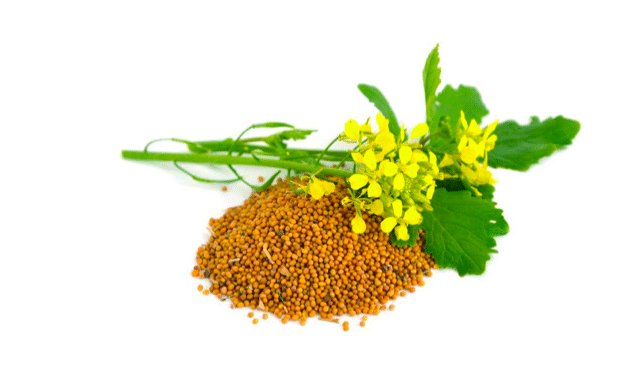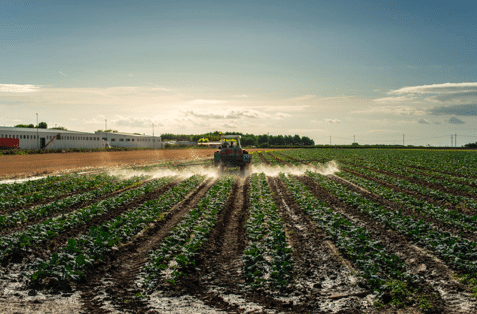
Canadian agtech company MustGrow Biologics (MustGrow Biologics Stock Quote, Charts, News, Analysts, Financials CSE:MGRO) is laying the foundation for future commercialization in the global biopesticide and fumigants market. That’s the skinny from Research Capital analyst Yue (Toby) Ma who initiated coverage of MustGrow on Wednesday with a “Speculative Buy” rating and $5.60 target price, which at the time of publication represented a projected one-year return of 62 per cent.
Saskatoon-based MustGrow is a late-stage agricultural biotechnology company that’s focused on developing natural pesticides, fumigants and herbicides derived from food-grade mustard seed. The company has lead candidate TerraMG currently in the US Environmental Protection Agency (EPA) registration process for use as a biofumigant. Over the past half-year, MustGrow announced major development partnerships with Sumitomo Corp and Bayer to evaluate MGRO’s technologies for the global markets.
MustGrow has been focusing on two compounds, one being allyl-isothiocyanate (AITC) for use as a biopesticide for preplant soil fumigation and post-harvest food preservation, as well as, thiocyanate for use as a bioherbicidal weed control.
Looking at the company’s TerraMG, a patented mustard plant-derived extract in liquid form of biological AITC, Ma said where chemically synthetic AITC is a well-established (and EPA approved) fumigant it has multiple shortcomings including its instant release, which restricts its wide application, its status as a Class 6 inhalation poison and its ineligibility for use in organic production.
By contrast, Ma says TerraMG is superior to the chemically derived version of AITC as it is chemically stable until after application, safe and easy for transport, storage and handling and is eligible for use in organic production.
“The environmental safety profile of TerraMG is better than that of chemically synthetic AITC in that the two components of TerraMG are separated and not active until combined with water in the field – this not only makes storage, shipping and product use safe and not hazardous, but also extends the shelf life of TerraMG to over three years (and still counting). Such a long shelf life is usually unheard of for a naturally biological product,” Ma wrote.
In getting TerraMG through the regulatory stage Ma said he expects MustGrow will leverage its previous regulatory approval of a previously developed and commercialized first generation bio-AITC product called MustGro Invest, a pellet form that does not exhibit any pesticidal activity.
“We believe TerraMG has a relatively low regulatory risk,” he said. “Additionally, compared to MustGro Invest, TerraMG is less bulky and more efficient due to it being an extract in a liquid formulation, resulting in a potentially more economic application rate. Field trials suggest that five to 40 gallons (equivalent to one to five lbs) of AITC in liquid formulation (TerraMG) are normally required for one acre farm land vs. up to 800 to 2,000 lbs AITC in solid formulation (MustGro Invest).”
Ma said MustGrow will be banking on its two new partnerships, which the analyst called transformational for the company, with both the Sumitomo and Bayer partnerships coming with the potential to be expanded into major commercial agreements, which bodes well for the company, according to Ma.
“We view MGRO as a lower risk play due to bio-AITC having been EPA- approved. Our valuation is based on an NPV analysis of: (i) TerraMG as a preplant soil biofumigant for applications currently under the EPA review, and (ii) a potential commercial agreement with Sumitomo, which has been assumed in 2023,” Ma wrote.
On MustGrow’s financials, the company reported zero revenue in 2020 and Ma has estimated the same for 2021 and 2022. Starting in 2023, he projects $4.1 million in revenue and gradually rising to $40.1 million by 2028. On fully diluted EPS, the analyst is estimating negative $0.06 per share for 2021, negative $0.05 per share for 2022, with earnings turning positive in 2023 at $0.03 per share and rising to $0.24 per share in 2024.
MustGrow’s share price has had a couple of jumps over the past 14 months, going from about $0.40 per share for most of 2020 to $2.00 by early 2021. The stock stayed there until around the time of the Sumitomo announcement in August when MGRO took another leap to around the $4.00 mark where it bounced around over Q4 2021 and is now trading around $3.60.
Last month, MustGrow announced a successful initial field trial with Sumitomo in the United States, saying the trial “confirmed the efficacy” of MustGrow’s biopesticide technology in treating the key roundworm species that affects cotton, soybeans and cucurbits. the two are now moving on to other crop categories and multiple countries.
“We are seeing continued field success with our mustard-based biopesticide technology. The US field trial performance with Sumitomo Corporation’s team continues to show that our technology works with potential application techniques in many different crop categories and geographies,” said MustGrow COO Colin Bletsky in a press release.
“Seeing continued success is great, but the exciting part is deepening the understanding of our technology with Sumitomo Corporation’s world-class team for expansion in the Americas. Having a sustainable, natural, organic technology perform as well as the leading chemistries provides a tremendous opportunity to help the agriculture industry confront key challenges in food production through innovation,” Bletsky said.
Leave a Reply
You must be logged in to post a comment.





 Share
Share Tweet
Tweet Share
Share




Comment